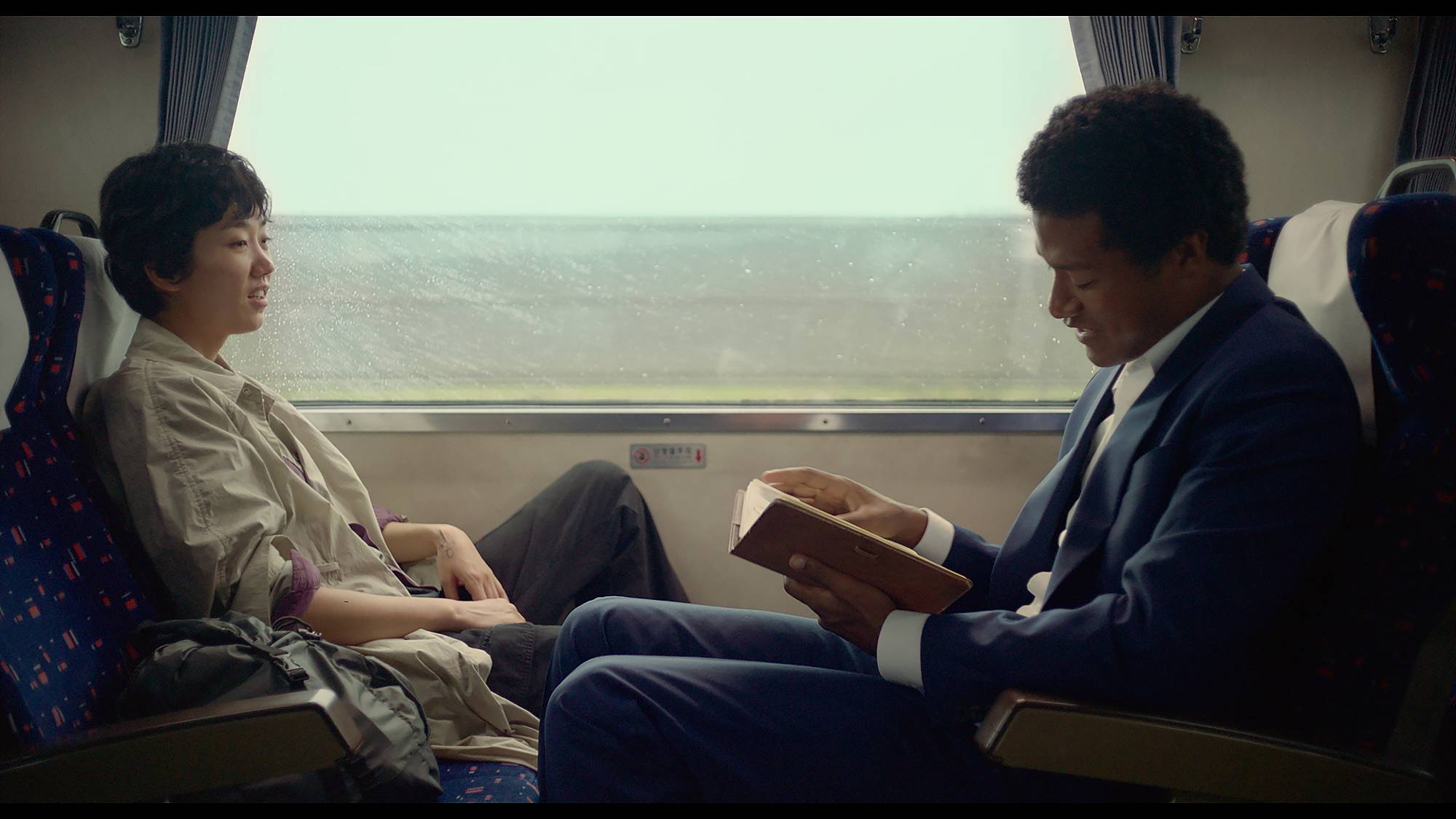The Mutation
Salang-ui tansaeng
VERDICT: Korean cineaste Shin Su-won’s first feature in three years, 'The Mutation' is a lyrical and heartfelt odd-couple road movie about bereavement, bigotry and self-belief.
For once, here’s a film whose international title is more spot-on than the domestic one. Korean cineaste Shin Su-won’s story offers much more than the corny “Birth of Love” might suggest. Instead, The Mutation is at once a delicate portrait of two individuals confronting the loss of their dearest, and also a subtle yet no less bruising critique of the social mores and prejudices in the director’s home country.
Bowing in the Vision Korea competition in Busan, where her 2017 feature Glass Garden also premiered as the festival’s opening film, Shin’s sixth feature deserves just as much attention and exposure as her award-winning, well-travelled and comparably star-powered 2022 film Hommage. Anchored by her two mesmerising young leads, whose poignant performances were suitably heightened by Yun Ji-woon’s atmospheric evocation of the urban and provincial locales they travel through, The Mutation is proof of her ability to combine artistry and her unwavering social concerns in whatever genre on offer.
Belying his skin colour and general appearance, Se-oh (the Nigerian Korean model-turned-actor Han Hyun-min) is Korean by birth and by bloodline – the only explanation he (and the viewer) is privy to is that he’s a “mutation”. Unsurprisingly, he is subjected to disdain, discrimination and gestures of desire for the exotic: a man calls him a “bushman” who should “go back” to his country, while a woman says she wants to have sex with him and, when he refuses, tries to frame him for robbing her.
Somehow, Shin might also even be putting the viewer’s own biases to the test, as Se-oh – a mild-mannered individual living in a small but very clean and well-appointed attic flat – doesn’t seem to fit the usual on-screen representation of a dark-skinned man in Korean cinema. (Contrast this with Han Hyun-min’s only film role so far, a bit part as a mechanic who revs cars up for illegal racing in the 2022 action thriller Secret Delivery.)
Having passed out during one of his shifts playing a white tiger (a mutant animal, you see) in an amusement park, Se-oh spends his sick leave drifting around, seemingly in a daze. He buys a very expensive suitcase and some matching clothes, a set-up which is supposed to facilitate his search for a new friend who could be by his side for the next two days. Drawing suspicion and even hostility from most people, he is approached by Sora (Lee Zoo-young), an artisan who makes handcrafted wooden tables for a living.
After spending their first night drinking and sleeping on park benches, the pair sets off on a journey of self-discovery and recovery. Slowly but surely, Shin intertwines their present-day tour of their haunts – a trip to Se-ho’s theme-park workplace, a visit to Sora’s small studio in a co-working space, and then finally her homecoming of sorts to a small town – with flashbacks about their past. Marching onwards, we gradually realise the source of their grief. For Se-oh, it’s his mother’s death and his father’s excommunication; for Sora, it’s the breakdown of her relationship with her girlfriend in a staunchly conservative Christian town.
“What is normal anyway?” says Sora, as someone challenges her for not being so. With The Mutation, Shin has offered a refined riposte to those trying to bully Se-oh, Sora and their kindred spirits into self-loathing or submission. With a nuanced screenplay mostly devoid of melodrama or sloganeering and cinematography defined by its considered framing and play on light and shadows, the film also offers relief to both the heart and the eye.
Director, screenwriter: Shin Su-won
Producer: Francis C.K. Lim
Cast: Han Hyun-min, Lee Zoo-young, Moon Geun-young, Lee Jung-eun
Director of photography: Yun Ji-woon
Editing: Woo Hee-jeong
Production design: Shin Woo-jung
Sound design: Kim Soo-hyun
Production company: June Film
World sales: Fine Cut
Venue: Busan International Film Festival (Vision – Korea)
In Korean
107 minutes

